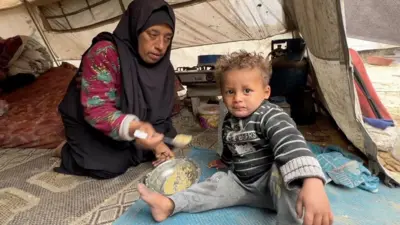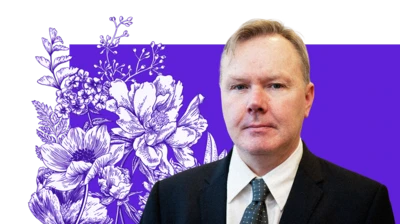We've updated our Privacy and Cookies Policy
We've made some important changes to our Privacy and Cookies Policy and we want you to know what this means for you and your data.
Afghan wealth stifled by security fears
- Author, James Melik
- Role, Reporter, Business Daily, ґуПуґ«ГЅ World Service
Afghanistan has enough mineral resources to make it one of the richest mining regions in the world according to Wahidullah Sharani, the Afghan mining minister.
The problem is companies remain hesitant about investing in the country whilst the current security issues remain unresolved.
The country's mineral deposits are worth between one and three trillion dollars, Mr Sharani says, and he is trying to attract investment to exploit the resources.
Top Stories
But many of the mineral deposits are in areas which are centres of insurgency and little development has taken place.
The Aynak copper mine project at Logar is the only site which has been developed so far.
Top Stories
"It is one of the relatively insecure areas of the country but because of the importance of the project we have secured the area and that has shown most of the international investors that the security issue would be taken care of by the government," Mr Sharani says.
"We still face security challenges particularly in the south, but our government has been working very closely with international troops to improve the security situation," he says.
"We are going to offer tenders which are in the most secure areas of the country."
Buried treasures
The view of Afghanistan has been transformed since the announcement of the huge mineral deposits in the country.
Geological explorations have been conducted since the early 1960s, and the Soviet Union completed their own surveys during their occupation of the country from 1979 to 1989.
The country shared the information with the Pentagon and the US Geological Survey organisation which used the most advanced and sophisticated techniques to verify the work that had already been produced.
"A week ago the Pentagon announced the information to the international media," says Mr Sharani.
It turns out that the country contains huge reserves of iron, copper, cobalt and gold.
An internal memo in the Pentagon described it as the "Saudi Arabia of lithium", and lithium is one of the key elements needed for batteries.
"World demand for minerals such as oil, copper, gold, lithium and cobalt has been growing very strongly," Mr Sharani says.
"It is the right time to offer these deposits to international investors in a way which will benefit the Afghan people in the long term."
Top Stories
Transparency issues
There are issues other than security which potential investors have to contend with, including an extremely difficult terrain, very little infrastructure and the problem of corruption.
So how does the mining minister think he can attract investors from European and American companies?
"We will move forward with international best practices to make sure that everything is done in the most right and efficient manner - and it will definitely benefit the common people," he says.
"That is the procedure to obtain international bidding and everything will be transparent and whoever comes up with the best economic package for Afghanistan, we will move forward with that."
Development
Afghanistan is going to tender one of the largest iron ore deposits in the world in September, followed by two or three other mineral deposits early in 2011.
"Sites will take a long time to get developed and for Afghan people themselves to get the benefit," concurs Mr Sharani.
"Oil and copper will take 5-7 years to develop while other deposits such as lithium or cobalt usually take 2-4 years to develop."
He maintains that the developments will increase government revenue which will be spent on the welfare of the people.
Furthermore, it will create tens of thousands of job opportunities, community development and the development of the infrastructure.
But with the continuing threat from the Taliban, will Afghanistan ever get these riches out of the ground?
"If western interests take control of these resources it will play right into the extremist narrative that the West is out to subjugate Muslims and plunder their resources," says Paul Pillar at Georgetown University.
While the profits could be huge, any company thinking of investing in Afghanistan has to measure the risks against the rewards, and it might be some time before any of them feel it is safe to exploit the wealth that the country has buried under its harsh terrain.
Top Stories
More to explore
Most read
Content is not available








